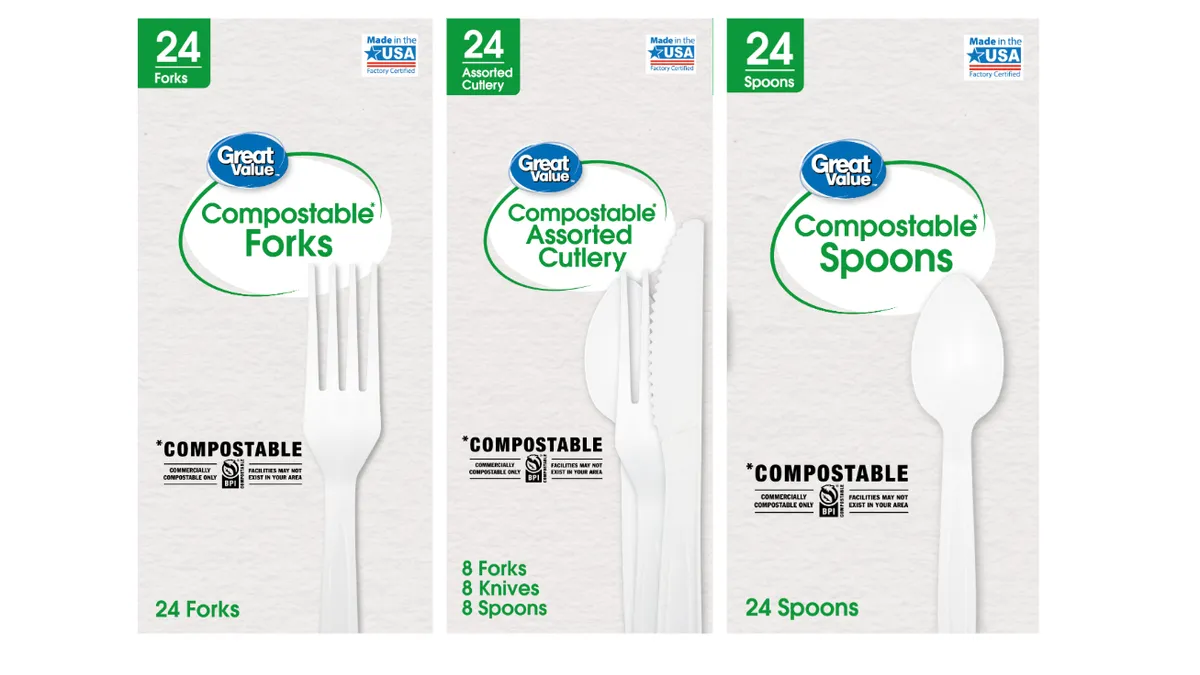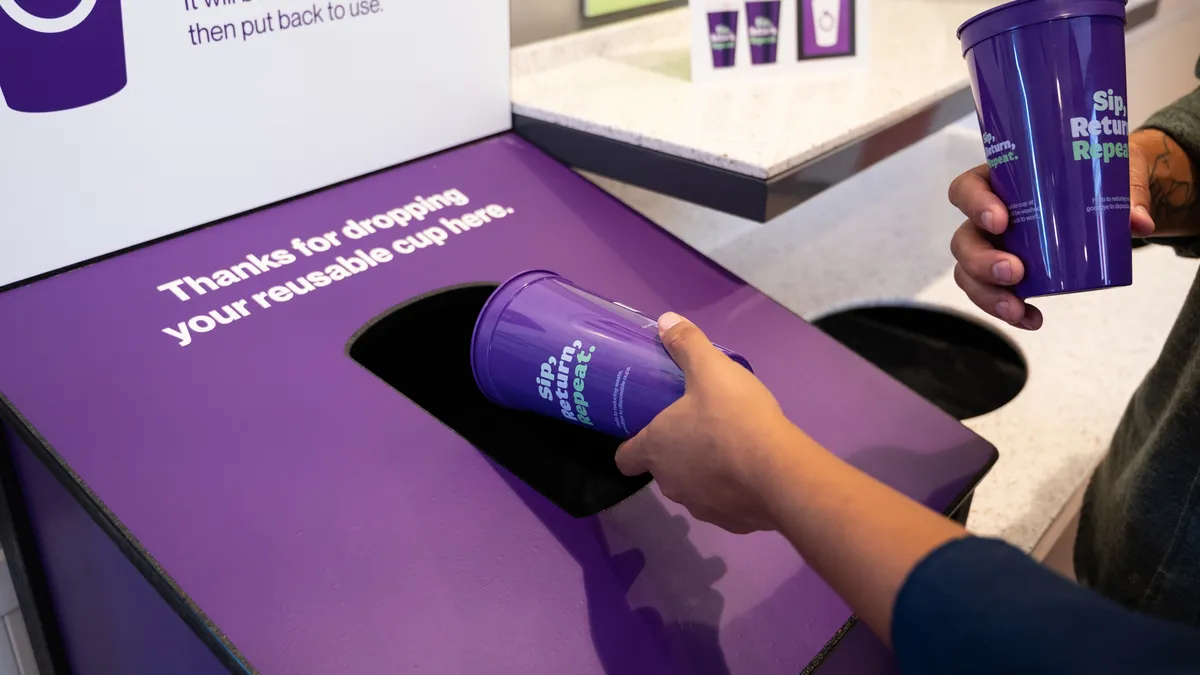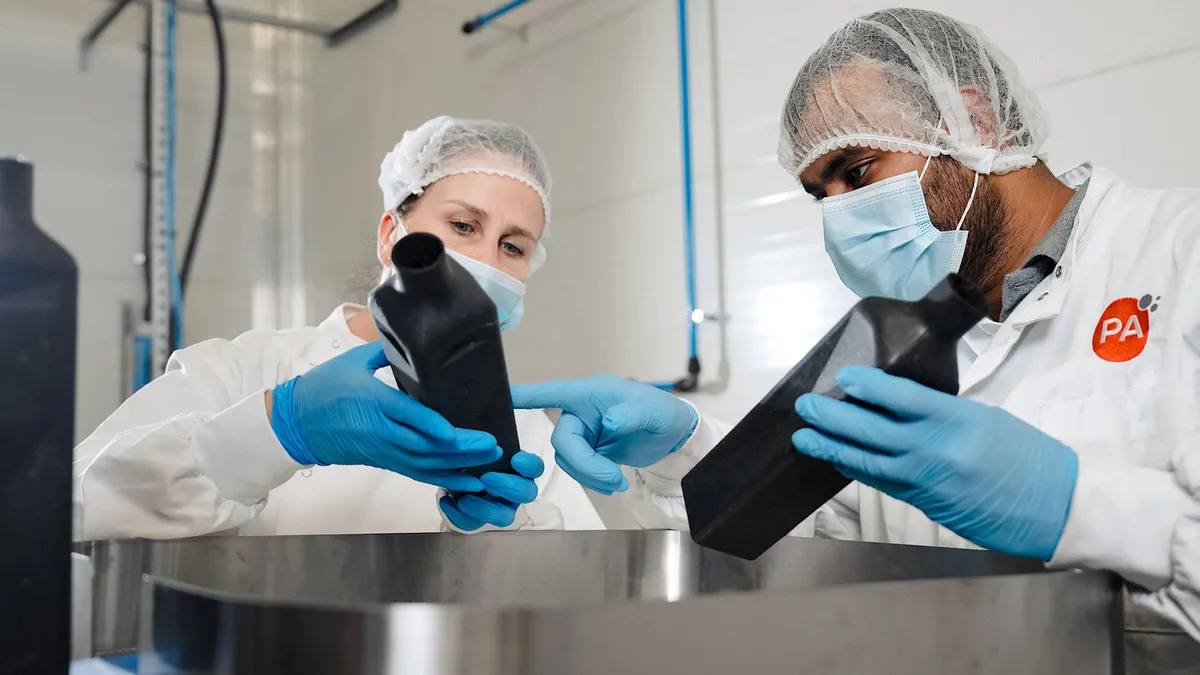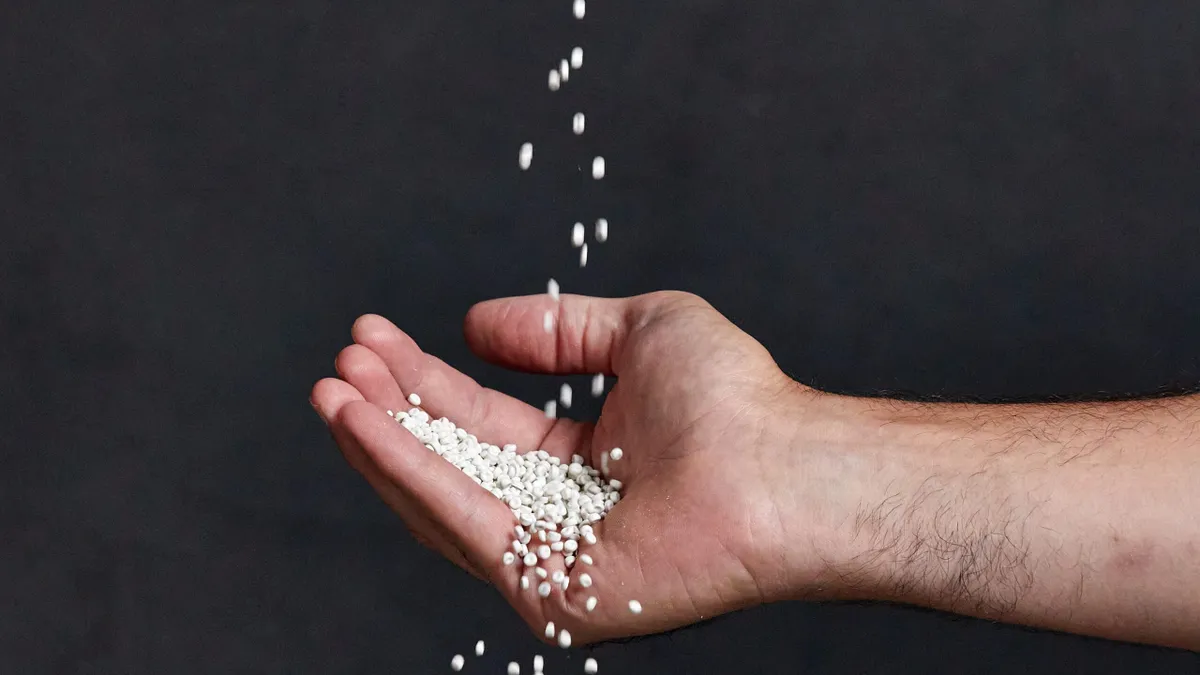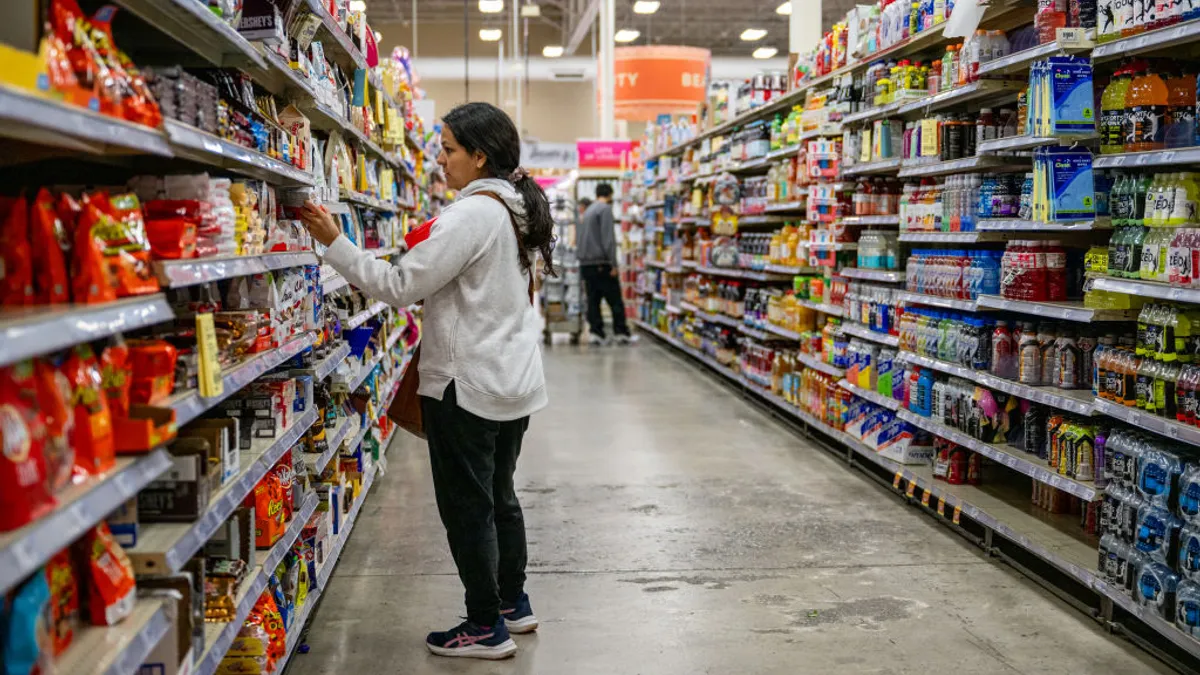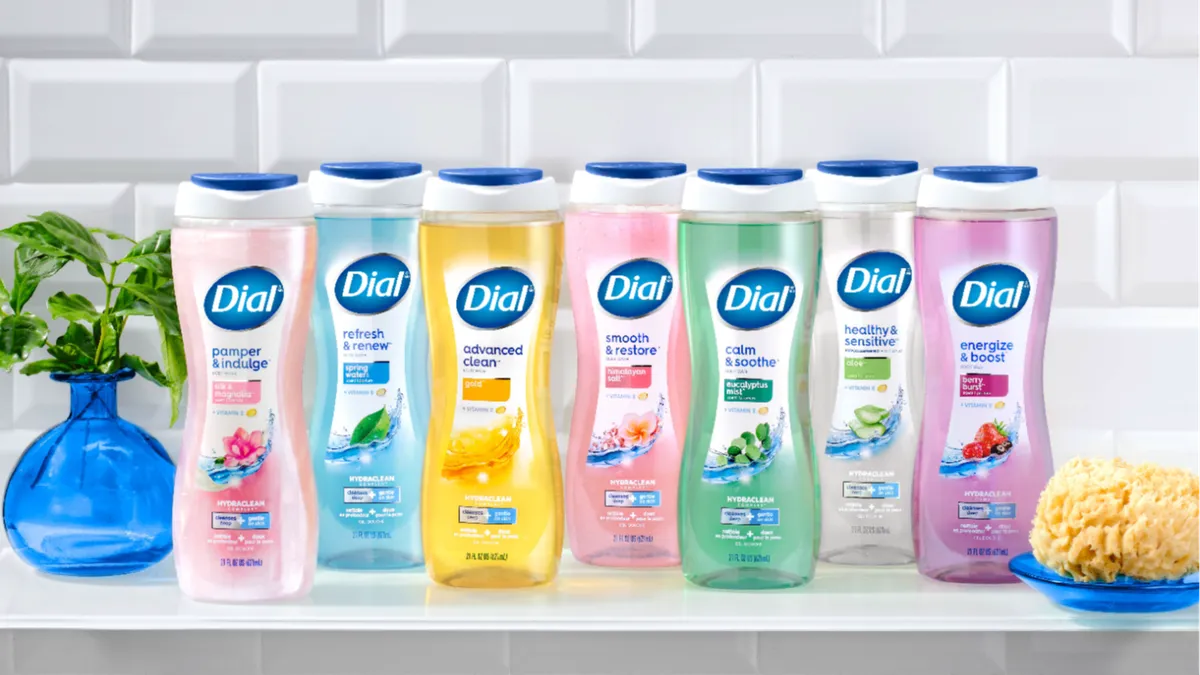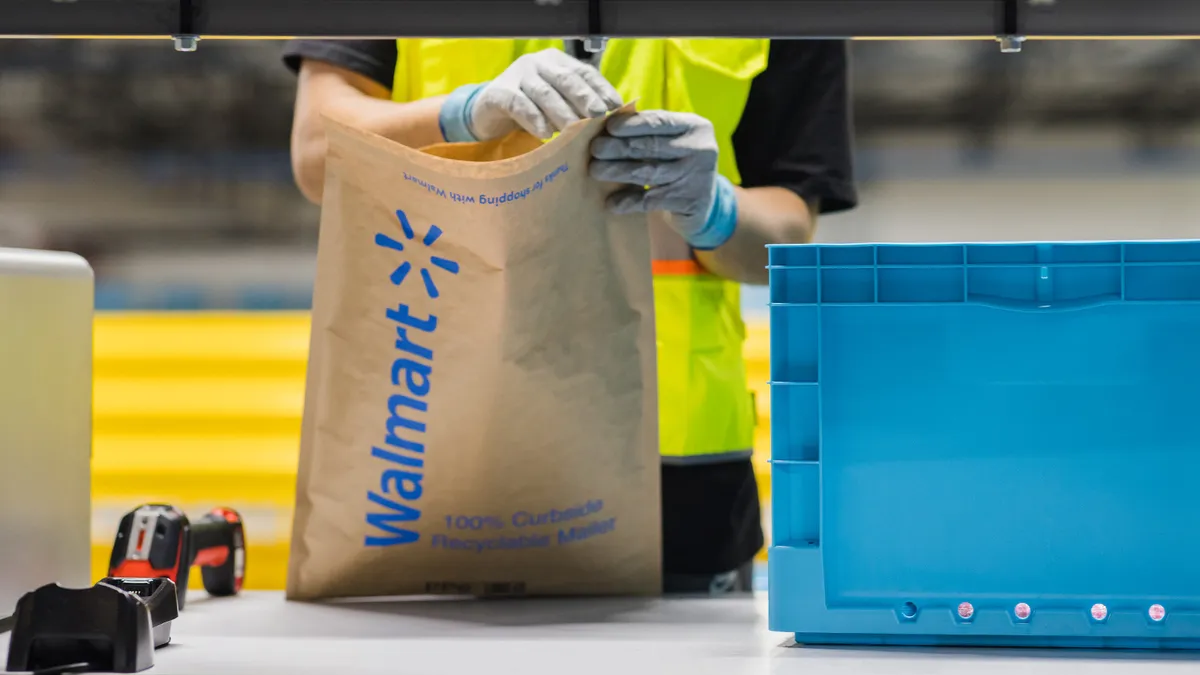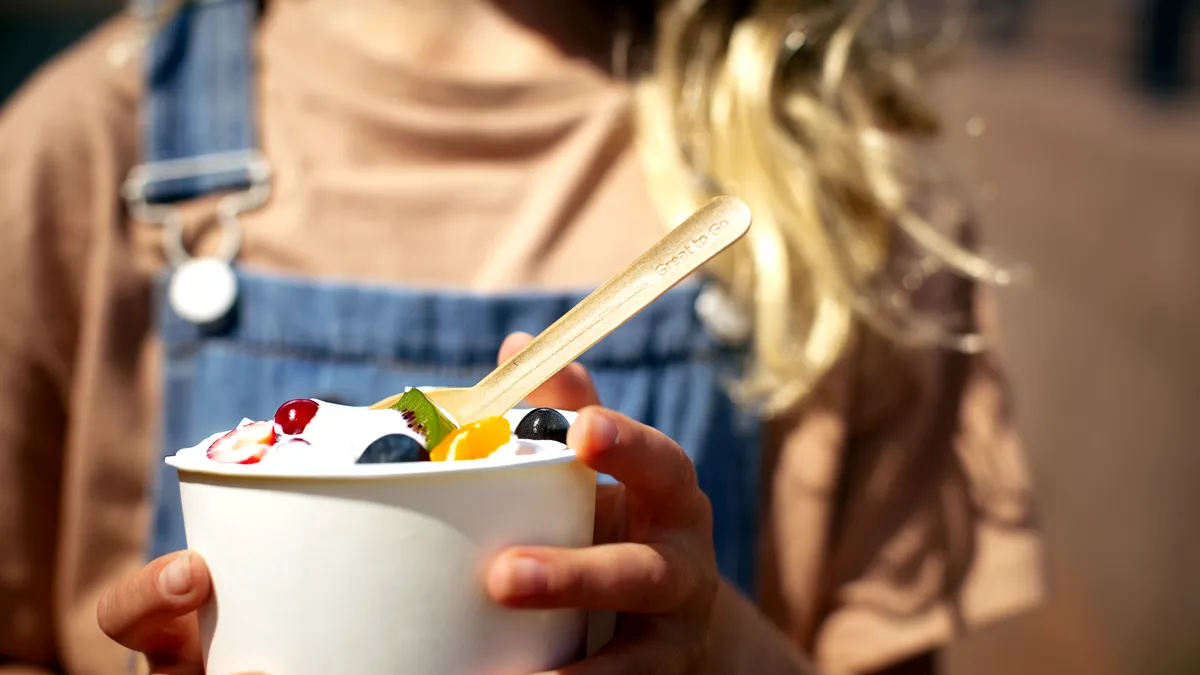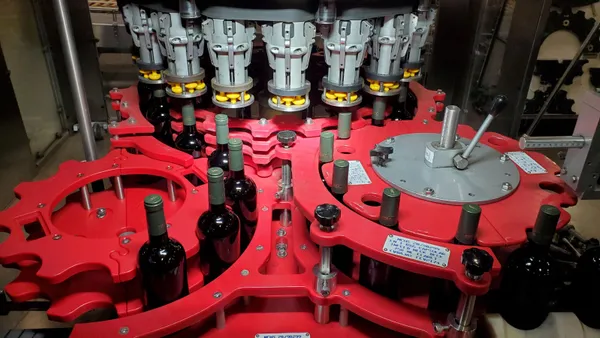BPI Executive Director Rhodes Yepsen sees Walmart’s launch of commercially compostable cutlery through Great Value, its store brand, as an event that “brings compostability into the mainstream.”
The largest retailer in the U.S. made the announcement last week, saying its new BPI-certified offering, sourced from U.S.-based manufacturer BeyondGreen, provides an alternative to single-use plastics and is “helping make the more sustainable choice an affordable one for our customers.”
Plastic cutlery is among the items on the problematic and unnecessary materials list compiled by the US Plastics Pact, of which Walmart and BPI are both participants. BPI is hoping to see “more companies who make that leap in identifying something like cutlery that's not recyclable in any community today, swapping that out for something that is compostable,” Yepsen said.
Beginning Sept. 14, Walmart started selling 24- and 28-count packs of forks, knives, spoons and assorted cutlery in 1,400 stores nationwide and online, with hopes to expand to more stores in the future. The product packaging features a BPI logo and states that the product is “commercially compostable only” and “facilities may not exist in your area.”
Yepsen said it’s exciting when retailers introduce a compostable item, rather than just focusing on recyclability, and the Walmart launch is poised to drive consumer awareness around composting. As consumers become aware of compostable alternatives, they want to know whether they can compost in their community. Hopefully, “people will now be looking to have that third cart to be able to collect and divert their food scraps and packaging.”
The number of full-scale food waste composting facilities that accept compostable packaging appears to be on the rise. Of 200 such commercial or municipal facilities that responded to BioCycle’s nationwide survey in 2023, 71% said they accept compostable food-contact packaging. Of those 141 facilities, 87 said they accept certified compostable bioplastic food service ware.
Among facilities that don’t accept compostable packaging, the commonly cited reasons included contamination from lookalike single-use plastic packaging, film plastic bags and a lack of disintegration in the composting process. Colorado’s largest composter, A1 Organics, announced this year it would no longer accept compostable packaging or service ware amid mounting contamination problems.
Regarding whether Walmart or the BeyondGreen teams encountered any concerns during the development process related to some composters no longer wanting to accept compostable packaging, a Walmart spokesperson said in an email that as with all programs the company launches, “we will listen to feedback and continually refine to meet the customers evolving expectations.”
In an ESG report published in June, Walmart said infrastructure to manage compostable materials is a challenge as it aims to increase product circularity. “Despite our engagement with suppliers to shift to compostable packaging, compostable facilities are not yet equipped to handle the growing amount of compostable plastic. Until facility numbers are increased, compostable plastic may continue to find its way to the landfill,” the report states.
Frank Franciosi, executive director of the US Composting Council, noted that Walmart is a national company putting out a product that looks and feels like plastic while rules or regulations around compostable packaging vary at the state level. Infrastructure is also scattered.
Franciosi said the organization prefers that compostable utensils be green, brown or beige in color or tint, and that traditional plastic utensils not be permitted by law to use those colors. Utensils also ought to feature the word “compostable” and have a third-party certification mark on both the package and the product itself.
BeyondGreen’s products, which also include offerings like plant-based pet waste bags, use “proprietary biopolymer formulations,” according to its website. Walmart states the cutlery can disintegrate in commercial facilities over 26 weeks. A Walmart spokesperson said in an email that it chose BeyondGreen’s offering over others because it met requirements to be commercially compostable and “also performed incredibly well without compromising the usage experience.”
“Another key factor was the affordability of the program ensuring accessibility to all customers,” the spokesperson added. Walmart reported that the 24-packs are being sold at $1.48, its entry price point for cutlery. “There’s a perception that more sustainable options cost significantly more, which presents a barrier for customers looking to save money on choices that are good for them, as well as the environment,” said Jennifer Jackson, senior vice president of merchandising for household essentials, in a company post.
BPI continues to advocate for more federal funding for composting initiatives through the Recycling and Composting Accountability Act and the COMPOST Act, and for state labeling laws that help address consumer education and contamination issues. The organization calls for retailers to play an advocacy role to bolster broader composting infrastructure.
“We absolutely need retailers and companies who are introducing compostable products to play a role in the downstream success of compostability and diversion just like with recycling,” Yepsen said.
In packaging, Walmart aims to have 100% recyclable, reusable or industrially compostable packaging for its private brands by 2025. Walmart estimates it was 63% of the way there in 2022.



